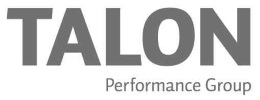You have made a good first impression with your resume and now have an interview. If you don’t prepare for your interview or arrive late or always cut your interviewer off, you could be cutting yourself out of the race before you even started.
Effective interviewing merely requires you to prepare and practice. Basic interview tips are readily available, fairly simple to follow and yield strong differentiating results. So there is no reason for you not to be effective in an interview. And yet, you will be amazed at how often even basic interview tips are forgotten or overlooked. Don’t make that mistake. By preparing and practicing, you are setting yourself up to be present, less nervous and ultimately engaged for success.
Here are the best interview tips, gathered from personal experience, friends/peers and scientific studies that when followed, can produce strong interview results.
1. Research.
If you want to impress prospective employers then be prepared and do a bit of research into the company you’re applying with. Find out what you can about the organization so you can tailor the interview answers you give to suit their needs and expectations. Doing this will also give you a much better idea of whether the company is a good fit for you.
2. Practice.
Answer interview questions out loud in front of a mirror, record yourself answering questions or practice answering questions in front of someone else. Practice gives you the opportunity to clarify and hone your message. It allows you to experience and adjust your non-verbals. It creates comfort when you are in the actual interview so you can be present and in the moment of conversation.
3. Your Three Uniques.
Be prepared to give three examples that demonstrate both your technical expertise and show your strengths or differentiators. Craft the story to provide the situation, your role and the outcome. Practice saying each answer aloud.
4. Food and Beverage.
Eat protein ahead of time. Avoid sugar and caffeine. Sugar and caffeine alter your body chemicals, affecting your blood sugar, exacerbating nervous jitters and can block access to the thinking part of your brain. Protein allows for a constant, solid energy so you can endure the length of the interview comfortably.
5. Dress Appropriately.
Think carefully about what you wear to interview. It’s safe to assume that in most cases business formal attire will be appropriate but make sure you feel comfortable or you won’t come across well.
6. Arrive on Time.
This should be obvious. Always ensure you’ve worked out directions and anything else you might need to know before you set off for your interview so there’s no danger of showing up late.
7. Paperwork.
Make sure you take any relevant paperwork with you that you may need at an interview, even if you’ve already sent copies with an application. This could include your resume, examples of previous work, writing samples, transcripts and references. Remember, just because you brought a lot of paperwork, doesn’t mean
you should force them all on the interviewer. Show them only if they are appropriate and relevant to the interview.
8. Ready your Body and Mind.
Write down why you are so great on a sheet of paper 30 minutes before your interview. Then, practice a power stance and say your strengths out loud so your ear can hear your voice. Standing in a dominant manner, for example with your hands on your hips with your head up, will actually change the hormonal balance in your body and make you genuinely less nervous, more confident and more leadership oriented.
9. Handshake.
Look someone in the eyes and grasp one’s hand in a web-to-web fashion, use a slightly firm grip and three up and down shakes. Done.
10. Pause and Breathe.
This is so critical and often forgotten because you are either nervous or too excited to take a pause or both. During your interview, wait until the interviewer finishes the question before answering and take time to think before you speak. If you give yourself a moment to gather your thoughts you’re much more likely to give a relevant answer than if you panic and blurt out the first thing that comes into your head. Pause for a moment before you answer questions and you’ll be calmer and much more coherent.
11. Show Enthusiasm.
Energy, enthusiasm and interest are important to show. Smile occasionally, make eye contact without staring, and lean slightly forward. Body language matters in an interview. If you often look away, lean back and/or cross your arms, you will look defensive and less interested even if you don’t say so in your words. On the other hand, showing enthusiasm also doesn’t mean you are bouncing off the wall or raising your voice. It’s a balance. It’s about showing you are a professional and very interested in this opportunity without scaring anyone.
12. Prepare Questions in Advance.
Write down a few pertinent questions to ask at the end of your interview. By asking good questions, it’s your chance to find out what you can’t from your research, show that you are interested and know about the company. Whether you are a veteran at job interviews or new to it all, following these basic interview tips are key to giving yourself an edge over the competition in this competitive job market.
